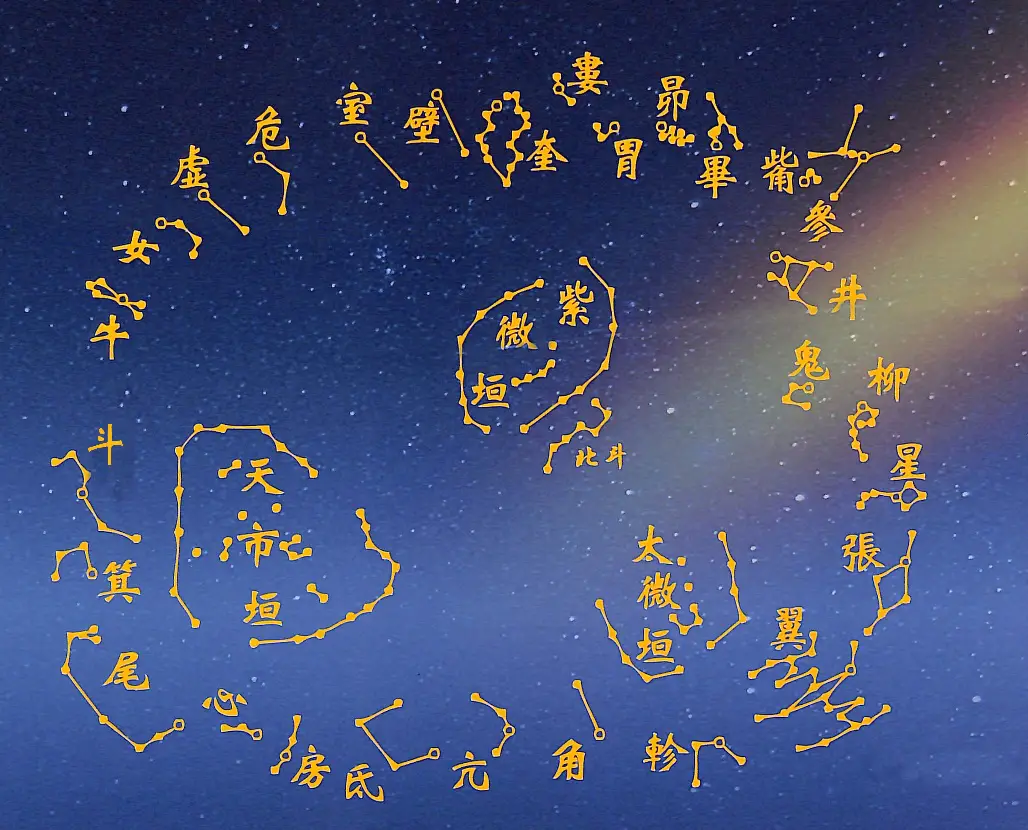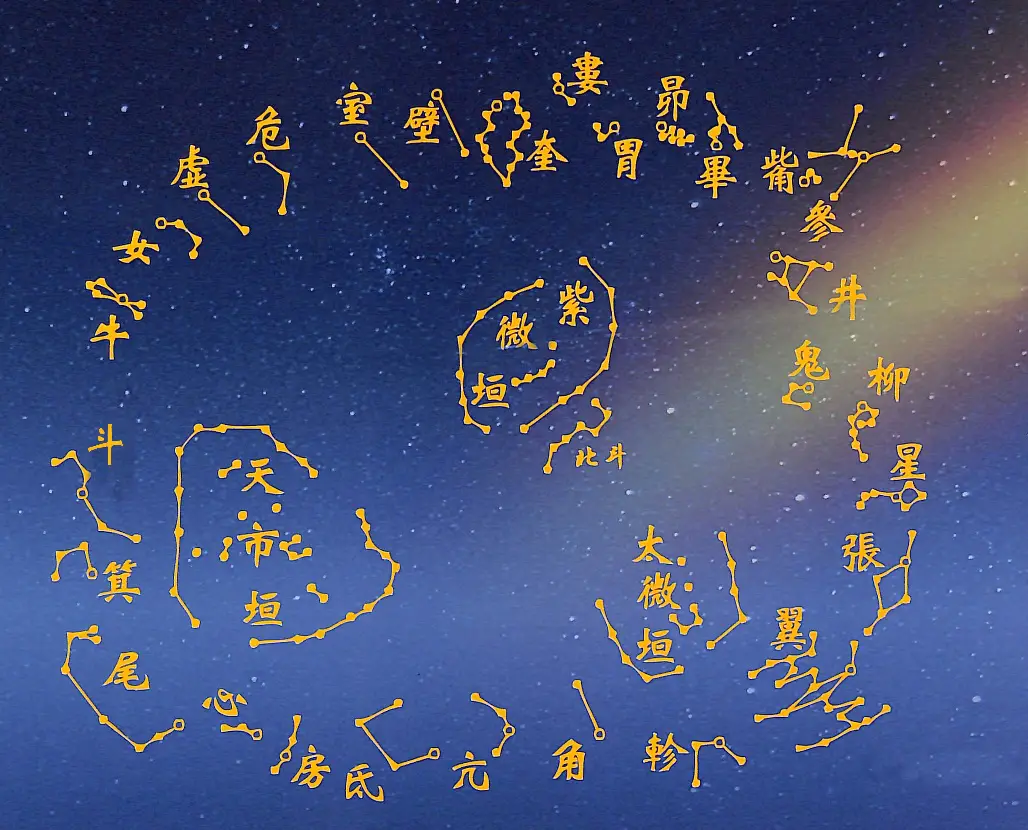The Tradition of the Concept of Mandate of Heaven and the Context of the Three Kingdoms
Since the Zhou Dynasty, ancient China has had the concept of "Mandate of Heaven," emphasizing that heavenly will determines the succession of royal power. The notion of "the Mandate of Heaven is not constant" provided a theoretical basis for overthrowing tyranny and establishing a new dynasty. The idea of "heavenly-human resonance" during the Spring and Autumn period further reinforced this logic: disasters and anomalies were seen as precursors to political upheaval, and celestial phenomena were interpreted as prophecies of dynastic change.
By the time of the Three Kingdoms, this ideological system had deeply rooted itself in people's hearts. Not only did the common folk generally believe in "heavenly will," but even the lords and ministers used "Mandate of Heaven" as a guide for their actions and decision-making. In the late Eastern Han period, political turmoil and frequent disasters, such as plagues, earthquakes, comets, and solar eclipses, provided visible evidence for the perception of "changes in heavenly will." The frequent changes of dynasties were essentially a power competition concerning the "ownership of the Mandate of Heaven."
In such a cultural and psychological environment, whoever held the interpretative power of "heavenly will" gained the upper hand in public opinion. Figures like Cao Cao, Liu Bei, and Sun Quan all rose from chaotic times, yet they all worked hard to construct "legitimacy," and the discourse of "Mandate of Heaven" became one of the most convenient tools.
Cao Cao's Dual Strategy Regarding "Heavenly Will"
Cao Cao, as the founder of the Wei state, is often viewed by later generations as a "villainous hero," but his use of "heavenly will" is highly ambivalent: he was both superstitious about celestial bodies and cautiously manipulative. In "Romance of the Three Kingdoms," Cao Cao observed celestial phenomena on the eve of the Battle of Chibi and felt ominous when he saw the Big Dipper shaking and Mars entering the Southern Dipper; however, in historical records, he repeatedly criticized the art of divination and advocated for pragmatic governance.
This contradiction reflects Cao Cao's highly strategic cognitive structure: externally, he understood how to use "heavenly will" to boost morale or intimidate enemies; internally, he sought to prevent his subordinates from becoming obsessed with astrology, which could affect governance efficiency. For example, he executed the astrologer Zuo Ci, who was superstitious about celestial phenomena, and severely punished those suspected of spreading prophecies of the "Mandate of Huangchu."
Notably, there is a record in "Records of the Three Kingdoms": in the fifteenth year of Jian'an (210 AD), a comet appeared in the northwest, causing unease among the court officials, while Cao Cao remained indifferent and retorted, "Have there not always been comets when there are states?" This rational attitude does not imply a complete disbelief in the Mandate of Heaven, but rather a strong rationality to counter the public's anxiety, stabilizing the confidence in his rule.
Therefore, Cao Cao was not a true "materialist," but rather someone who understood the "soft power" of celestial phenomena in politics, neither indulging in it nor failing to leverage it.

Zhuge Liang's Belief in Celestial Phenomena and Sense of Destiny
In contrast to Cao Cao's rational political strategy, Zhuge Liang's attitude towards "Mandate of Heaven" and celestial phenomena is more characterized by "rational mysticism." "Romance of the Three Kingdoms" portrays him as a symbol of wisdom who "observes celestial phenomena and perceives heavenly will," particularly famous for the "Seven Stars Lamp prolonging life" and "observing stars to determine the timing of the Northern Expedition."
In the section about the "Seven Stars Lamp," Zhuge Liang set up an altar and arranged lamps to prolong his life and complete the Northern Expedition, insisting that the lamps must not go out for forty-nine days. However, due to a mistake by Ma Dai, the lamp went out, and Zhuge Liang sighed, saying, "Heavenly will is hard to defy," ending his life with the words "It is fate." This episode is clearly a later literary embellishment, but it reflects the ancient belief in the irreversibility of heavenly will.
More representative is Zhuge Liang's habit of gazing at the stars before each military campaign, observing the movement of the Big Dipper to determine the success or failure of his military endeavors. For example, although his "Memorial on the Northern Expedition" does not explicitly mention the Mandate of Heaven, it reveals a high regard for the relationship between heaven and humanity: "I will devote myself to the utmost until death," which also implies a conscious acceptance of the mission of the Mandate of Heaven.
However, the historical Zhuge Liang was not blindly superstitious. The analysis and planning in "Longzhong Plan" were entirely based on a clear judgment of the geographical reality, political landscape, and talent allocation. He believed in the Mandate of Heaven but valued human strategy more; he gazed at the stars while remaining grounded. This attitude may explain why the "wise man of a lifetime" was still unable to reverse the fate of the Shu Han— not due to a lack of strategy, but because ideals and the Mandate of Heaven could ultimately not coexist.
The Narrative Construction of Celestial Phenomena and Dynastic Change
From a broader cultural narrative perspective, celestial phenomena and disasters are often used as a prelude and evidence for the "transfer of the Mandate of Heaven." In the Three Kingdoms, several key turning points were preceded by changes in celestial phenomena.
Before Dong Zhuo entered the capital, Luoyang frequently experienced earthquakes and comets, which were seen as signs that "the Han dynasty was about to end"; after Liu Xie ascended the throne, a white rainbow crossed the sun, and locust plagues occurred simultaneously, prompting civil and military officials to frequently petition for "governing with virtue," using disasters to express political criticism of the hopelessness of the Han dynasty.
Before Liu Bei's death, there are records stating that "stars fell like rain," which later generations used to confirm that his "fate was exhausted and heaven had abandoned him"; after the Wei state usurped the Han, celestial phenomena temporarily returned to calm, becoming a symbolic means of "legitimizing the change of dynasties."
Whether these celestial phenomena actually occurred is difficult to verify, but their frequent appearance in historical texts indicates that the ancients had already internalized "changes in celestial phenomena" as a rhetorical resource in political narratives. It was both a "natural phenomenon" and a "political tool"; both a reverence for heaven and a submission to humanity.
Therefore, we cannot simply categorize it as "superstition" or "science," but should view it as a special "cultural rhetoric," a conventional language for constructing the legitimacy of power in ancient China.
The Psychological Mechanism of the Discourse of Heavenly Will among the Masses
At the mass level, "heavenly will" is not just a political tool, but also a psychological comfort mechanism in the face of chaotic realities. During the Three Kingdoms period, the populace suffered greatly from war, disease, and harsh governance, and their daily lives were filled with uncertainty. The concept of heavenly will provided them with a belief in "order still existing."
If the rulers could "govern in accordance with heaven," even a change of regime could be accepted; conversely, if they "acted against heaven," popular uprisings could be justified. In other words, heavenly will became the moral standard for the masses to "accept" or "resist" the regime, serving as the most widespread consensus device in ancient political culture.
If monarchs and strategists are adept at utilizing this belief, they can shape themselves into "the chosen ones by heaven." The stories of Liu Bang slaying the snake to obtain the talisman, Liu Xiu sensing the omen of Guangwu, and Liu Bei's three visits to the thatched cottage are all reproductions of similar discursive mechanisms. In the Three Kingdoms, the "Liu family" became a natural symbol of "the legitimate lineage of the Han dynasty" and "the continuation of the Mandate of Heaven," able to win the support of scholars even when weak, due to this cultural foundation of "projection of heavenly will."
The End of the Discourse of "Mandate of Heaven" and the Awakening of Historical Rationality
By the end of the Three Kingdoms, when the Sima family usurped Wei and established Jin, the discourse of "Mandate of Heaven" was still repeatedly employed. After the Jin Emperor Wu ascended the throne, he held grand rituals to worship heaven and earth, posthumously honored his ancestors, and proclaimed auspicious celestial phenomena, intending to soothe the people's hearts and establish legitimacy through a formal "continuation of the Mandate of Heaven."
However, as political intrigue deepened and social rationality awakened, the discourse of "Mandate of Heaven" gradually shifted towards the symbolic rather than the decisive. Although historians still recorded celestial phenomena, they were more often used for moral exhortation rather than actual decision-making. Thinkers like Wang Bi and He Yan proposed philosophical ideas such as "valuing the void" and "nature," beginning to loosen the ontological foundations of the "determinism of the Mandate of Heaven."
By the Sui and Tang dynasties, although there were still discussions of disasters, they no longer directly determined the legitimacy of regime change. The "instrumentalization of the Mandate of Heaven" model reflected in the Three Kingdoms gradually receded to a cultural symbol, no longer serving as a judge of political reality.
It can be said that the Three Kingdoms was the last large-scale intervention of "Mandate of Heaven" narratives in power struggles, as well as a historical juncture where "rationality and faith" pulled against each other. It was set against a backdrop of tragedy, turmoil, and division, yet it also concealed a turning point for a civilization to reassess "fate" and "human effort."
